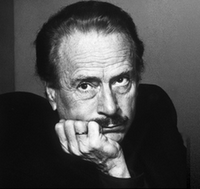The most provocative quote from
Remediation is in reference to the section on "Sex, Violence, and Computer Games": "Computer games come under attack precisely because they remediate the two genres (film and television) that American society has come to regard as immediate therefore potentially threatening. Books are not censored as strictly as film and television because for our visual culture the written word does not have the immediacy that a moving picture has" (Bolter and Grusin 99-100).
This quote is provocative from several standpoints. First of all, studies have shown that children who play violent video games are much more likely to try and act out this violence, or at the very least accept it as the norm, than those children who do not. Computer games where murder, rape, prostitution, cop killing, and drug trafficking are not "potentially threatening;" they are in fact, an immediate threat to our young generation. The immediacy of computer games is also very real. It is absolutely possible that kids can watch violence in a game and make arrangements to enact that violence in real life.
I also find it intriguing that books are not seen as as much of a threat to our society as television and film because of their lack of immediacy. I strongly disagree with the perceived lack of power of the written word and its agency and immediacy. What about the experience of reading a book and becoming so immersed in the text that everything around us temporarily disappears? When I was in high school, I was reading a novel that had me so entranced that I literally burnt water. I was boiling a pot to make some noodles while reading. I kept saying that after this page I would go and check on the pot. I eventually went into the kitchen and stood next to the pot and even as I stood next to its heat and precipitation, I allowed all of the water to boil out of the pot and it burnt. People, I submit to you that books can excite emotions and actions that one may have never thought possible. For those who are avid readers, books most certainly have a sense of immediacy, and in some cases, moreso than in film and television.
I think it a grave mistake to underestimate the power of books.I certainly am not suggesting that they necessarily should be censored more strictly, but I am, however, suggesting that perhaps we are not fully considering the ramifications of the written word. Books can be dangerous. The transferance of ideas and knowledge is a powerful medium. That is precisely why women and slaves were kept from learning how to read or write for so long. It isn't so much about the book, but rather about the possibilites and the ideas the book creates within the mind. To some, books can be a powerful call to action, or can be a means of totally changing the way we think about our world. Think about it. In some ways, books are more accessible and cheaper to access than film or television. You dont get carded at Barnes and Noble if you are seventeen and are trying to buy a provocative book, and all library books are free. Then there are ebooks, many of which can be accessed by almost anyone, twenty four hours a day. My argument is that perhaps we should be a culture that is more concerned about the possibility of the impact of books on the world than mainly focusing on film and television.
Getting back to my reference to the easy access of books at places such as public libraries, I have an educational experience that directly supports the idea that books can also be subversive and should be regarded as more than mere paper and print. When I was in high school, I was browsing the "book store" in the public library, trying to buy as many books as I could for a dollar. The one that jumped out to me was
The Kama Sutra. I remember looking at the pictures and thinking: Oh my God! Do people really do these things? Am I actually standing in a public library looking at such sexually explicit material and nobody cares? I am not breaking any laws, I am simply browsing a book. To make my experience complete, I had to turn over my dollar for the book to a woman who appeared to be older than my grandmother. In retrospect, in terms of this discussion, I find this memory to be quite fascinating. My parents thought I was "safe" within the rank walls of the public library. They thought I was doing research for a school paper or thumbing through tawdry romance novels. But never would they have suspected that their fifteen year old daughter was giggling at the Kama Sutra. A book, by the way, that I still am too embarassed to open again. I told this story to make the point that at that moment, that book had more immediacy than any film or television show I had ever seen. And I think it is more explicit than Sex and the City and should be censored more strictly. It seems as if our society has somewhat abandoned the power of the novel because its "old world" and television and film are "new world". But I strongly beg to differ.
Labels: the kama sutra and immediacy



